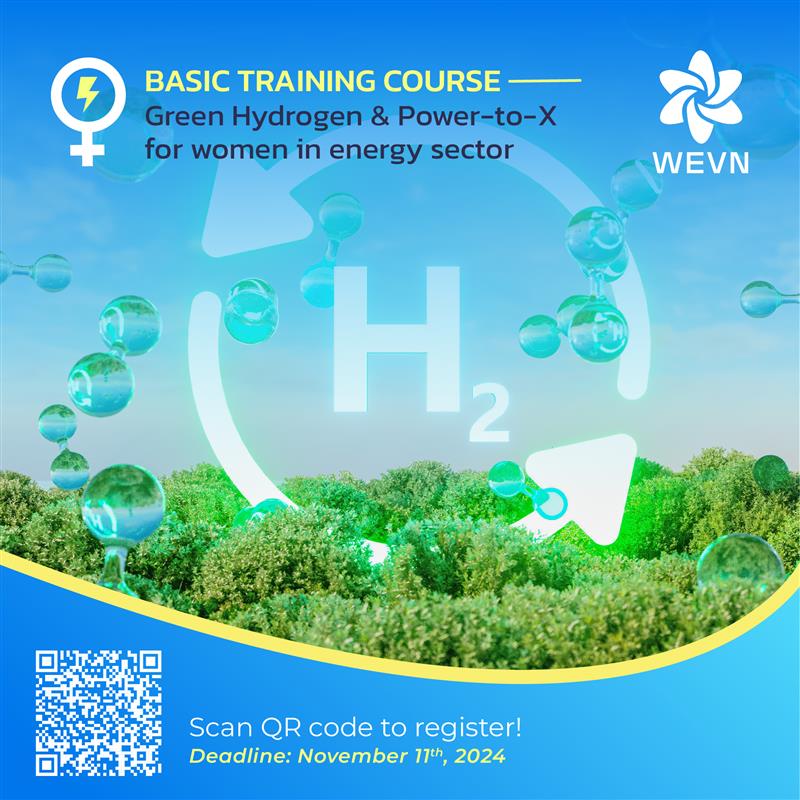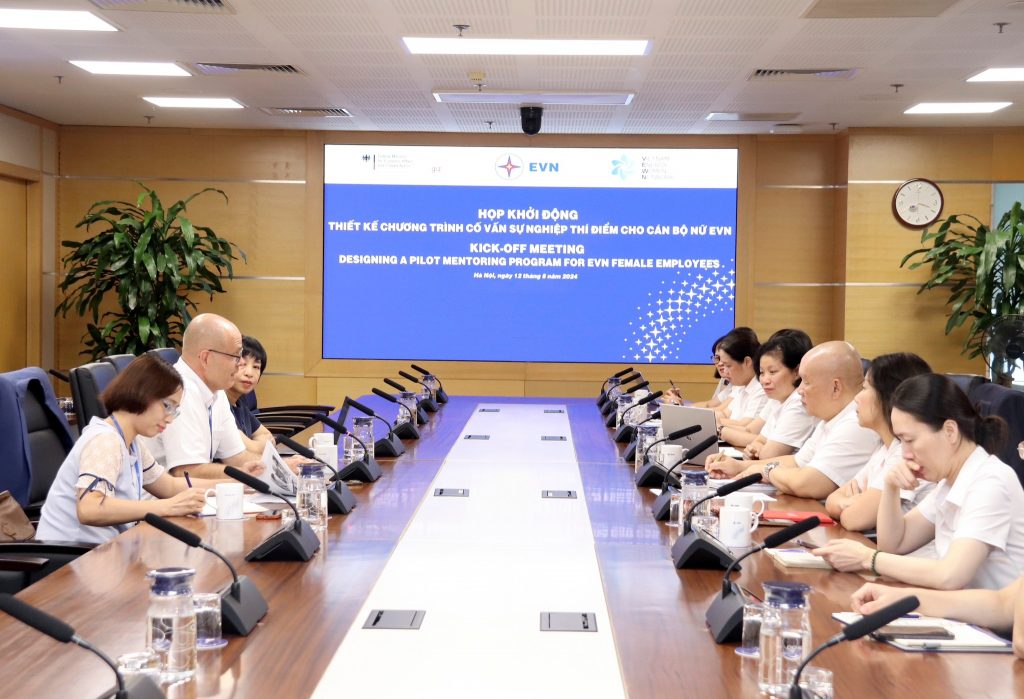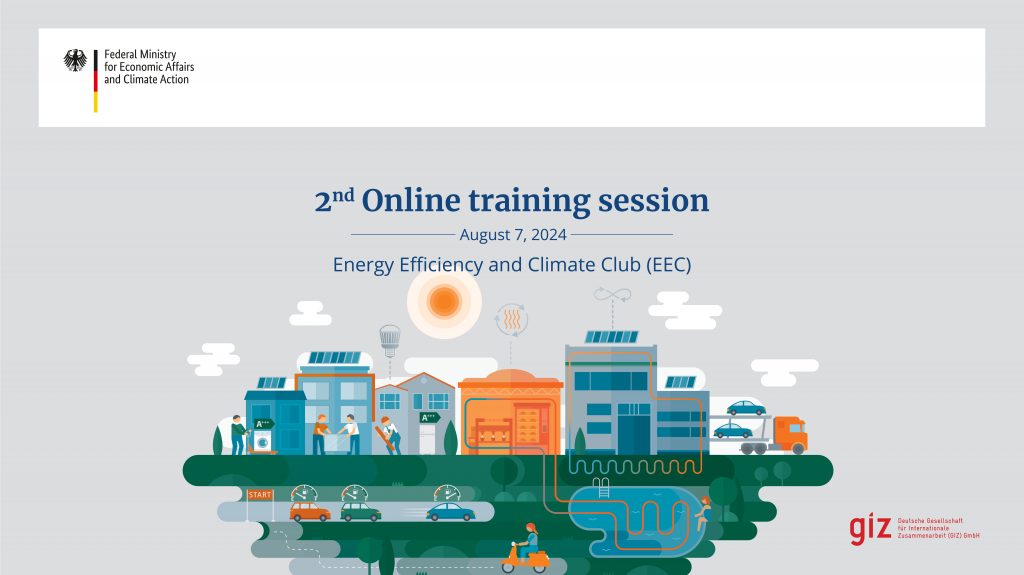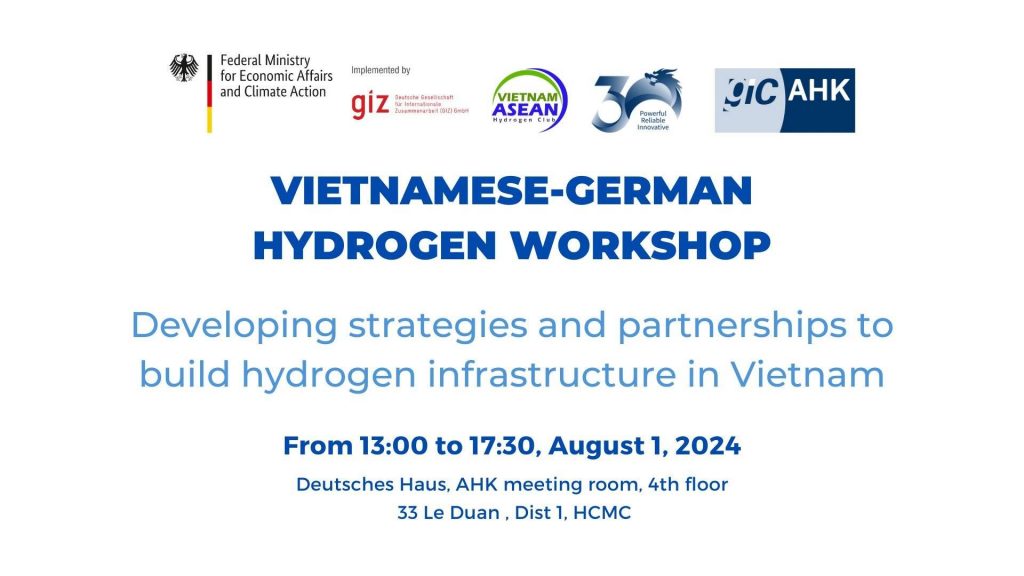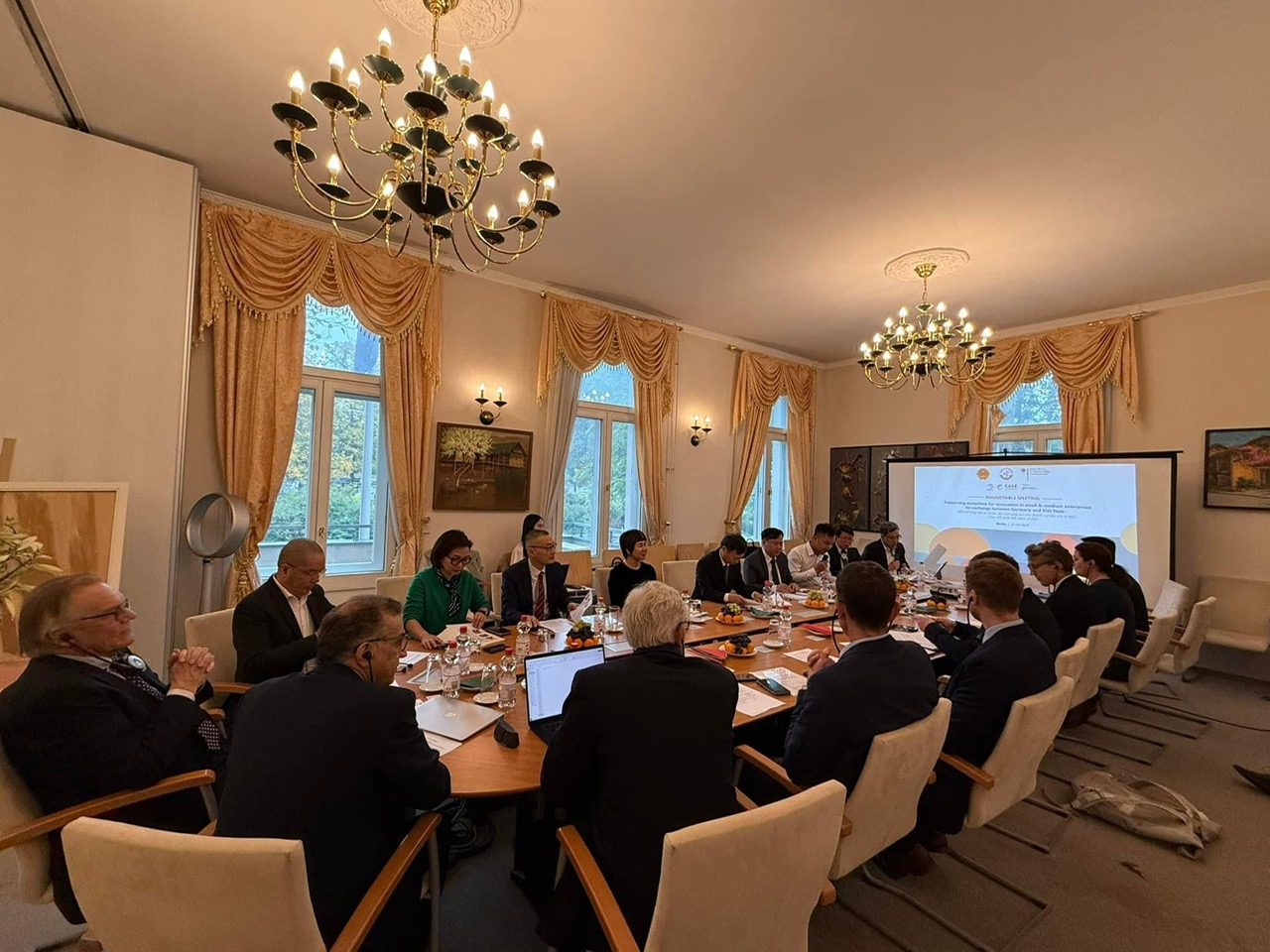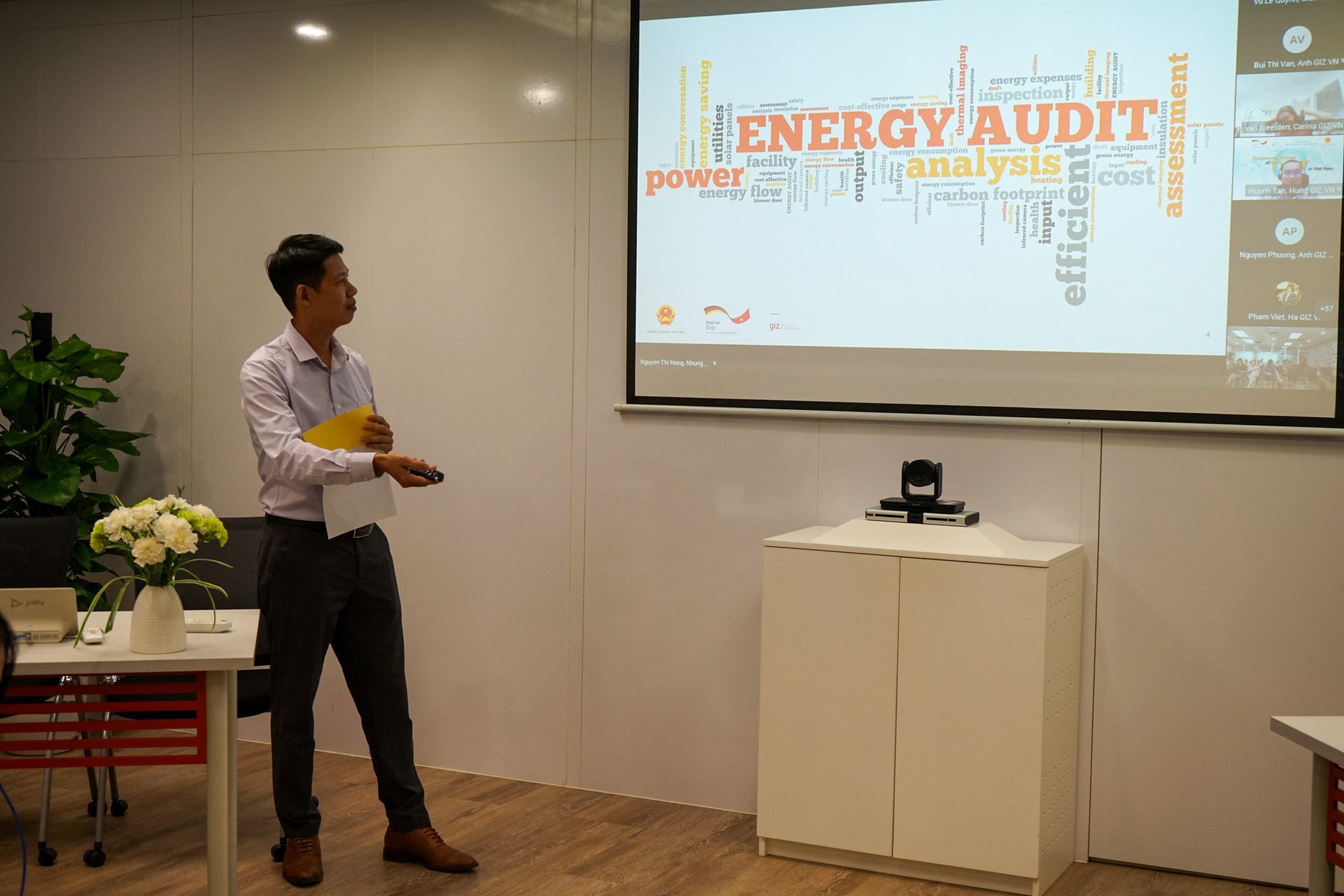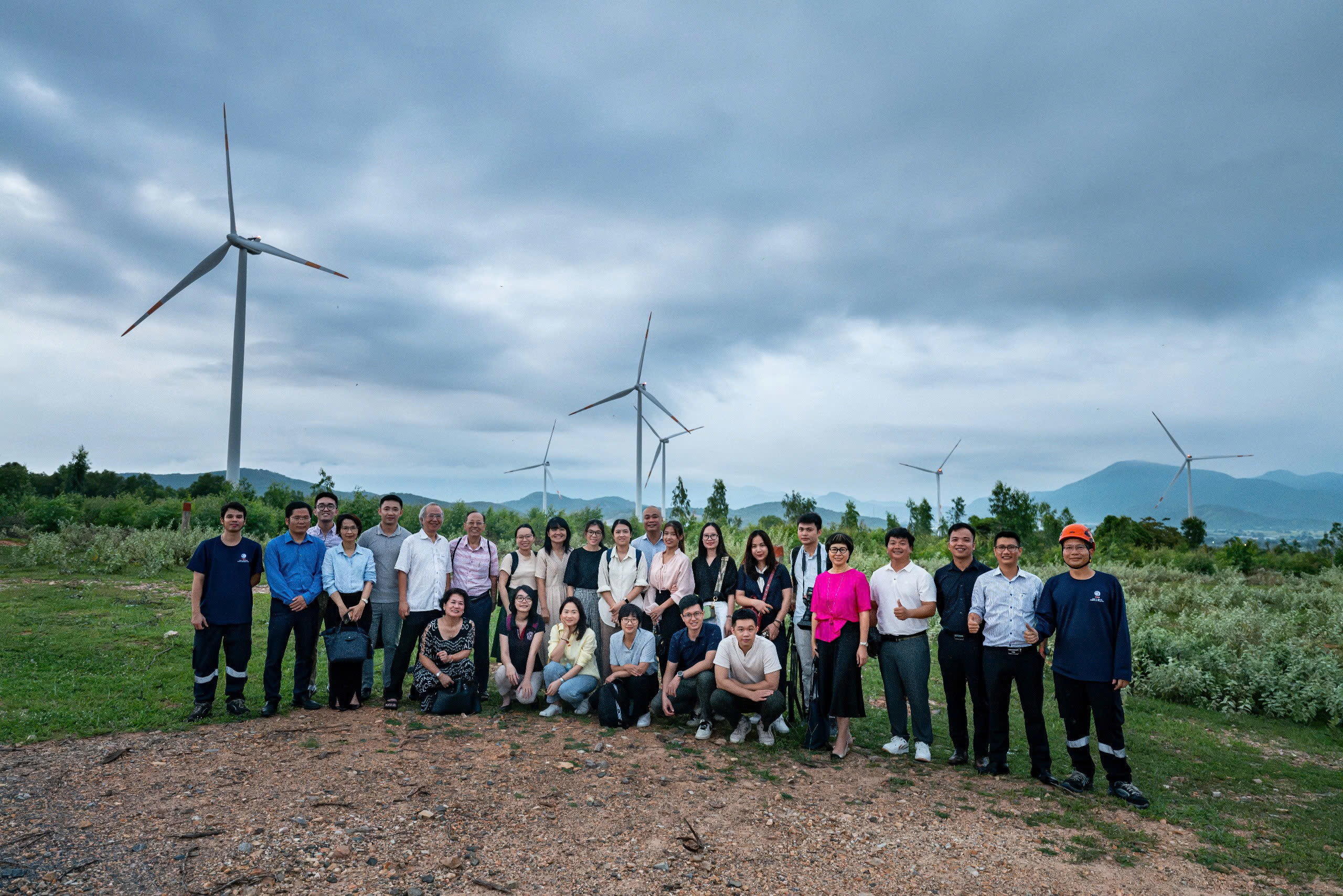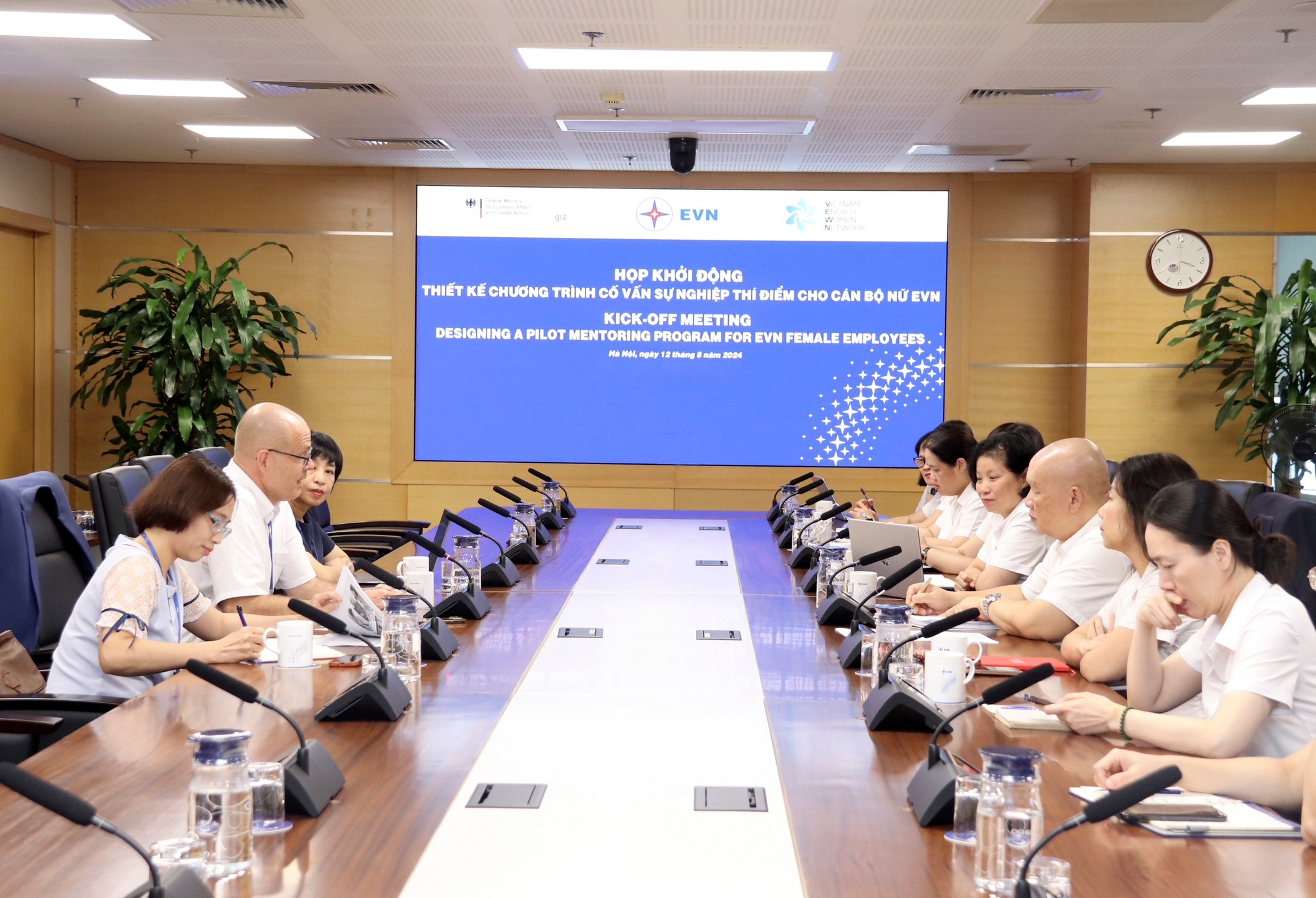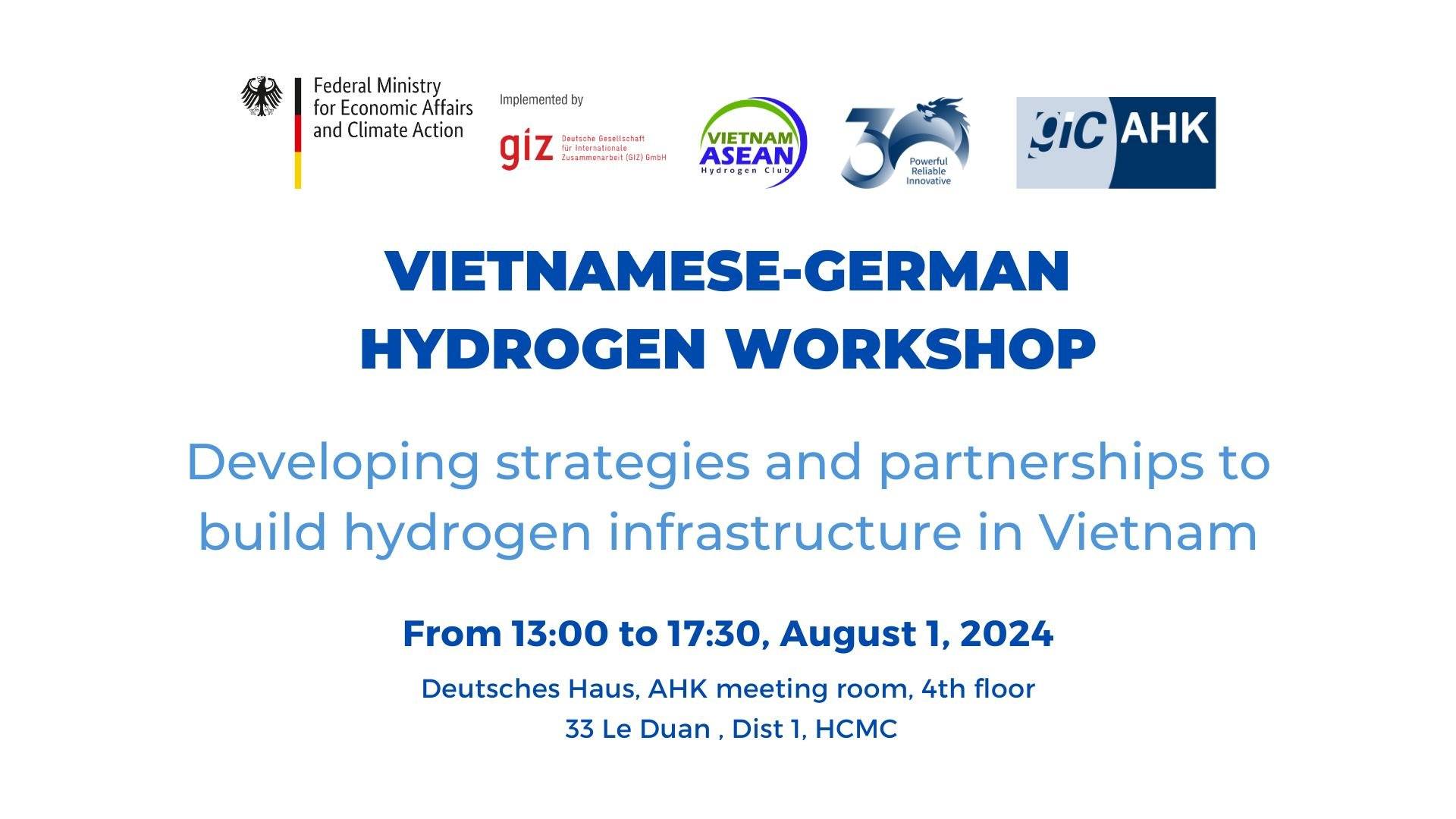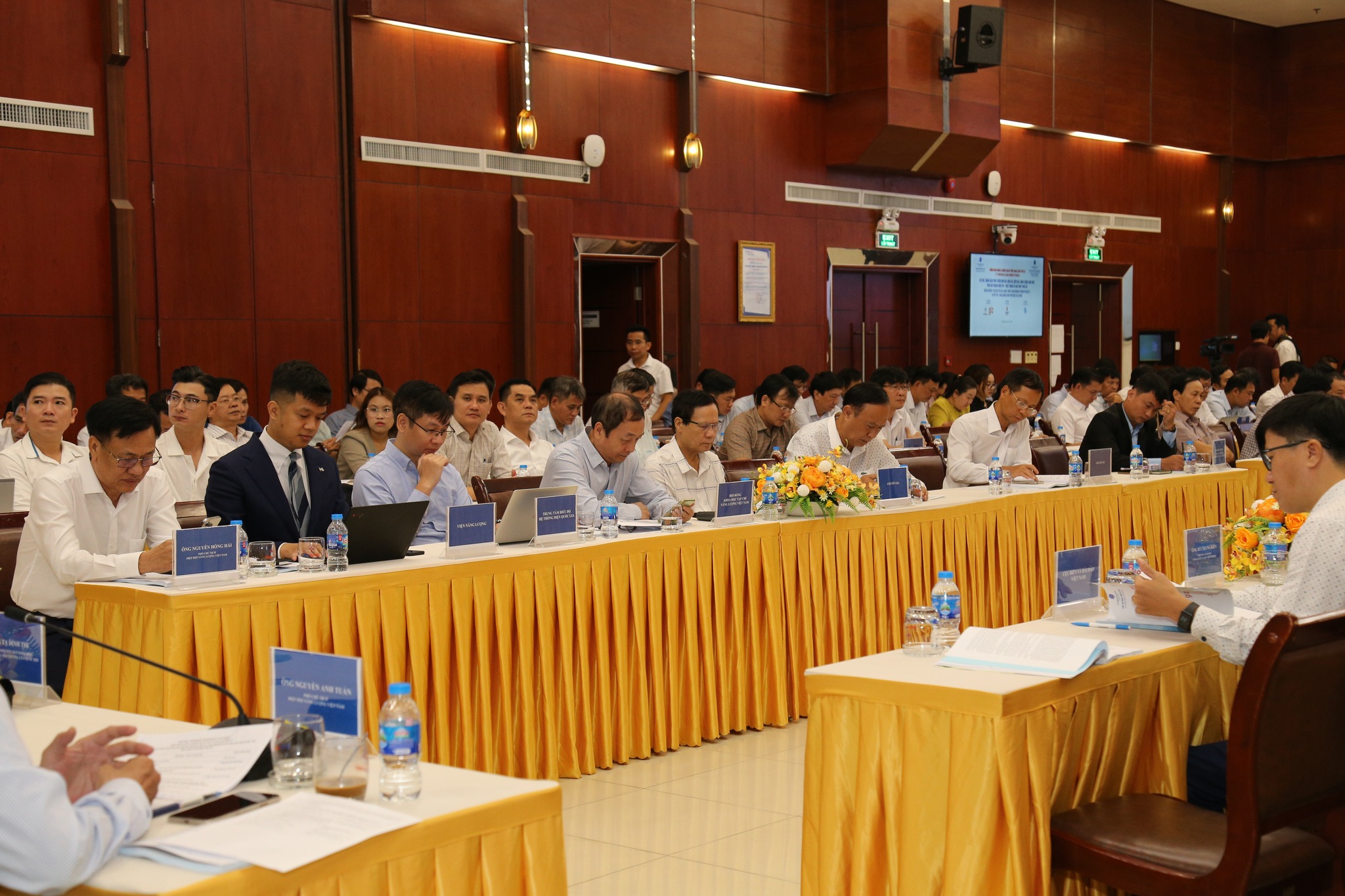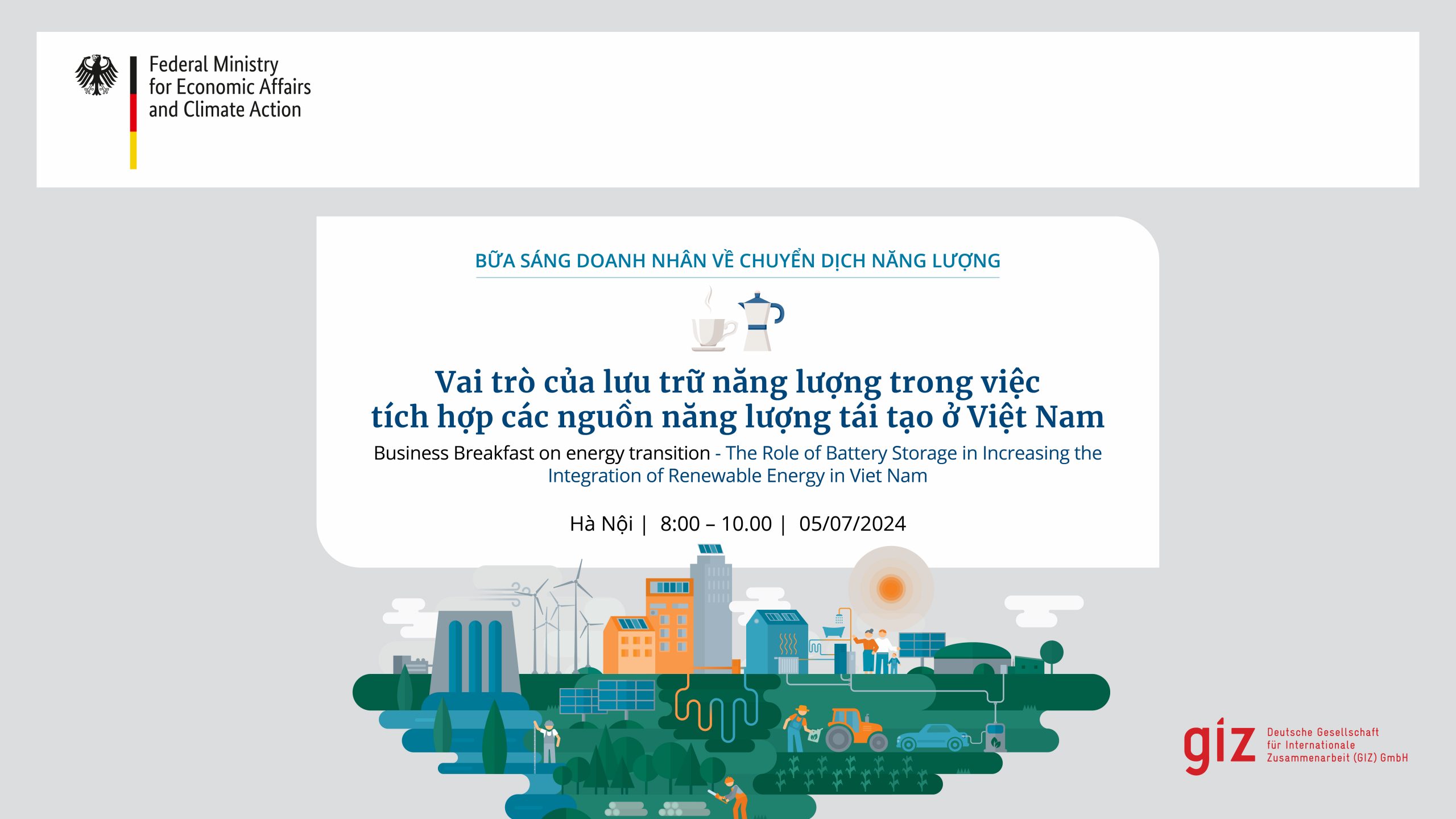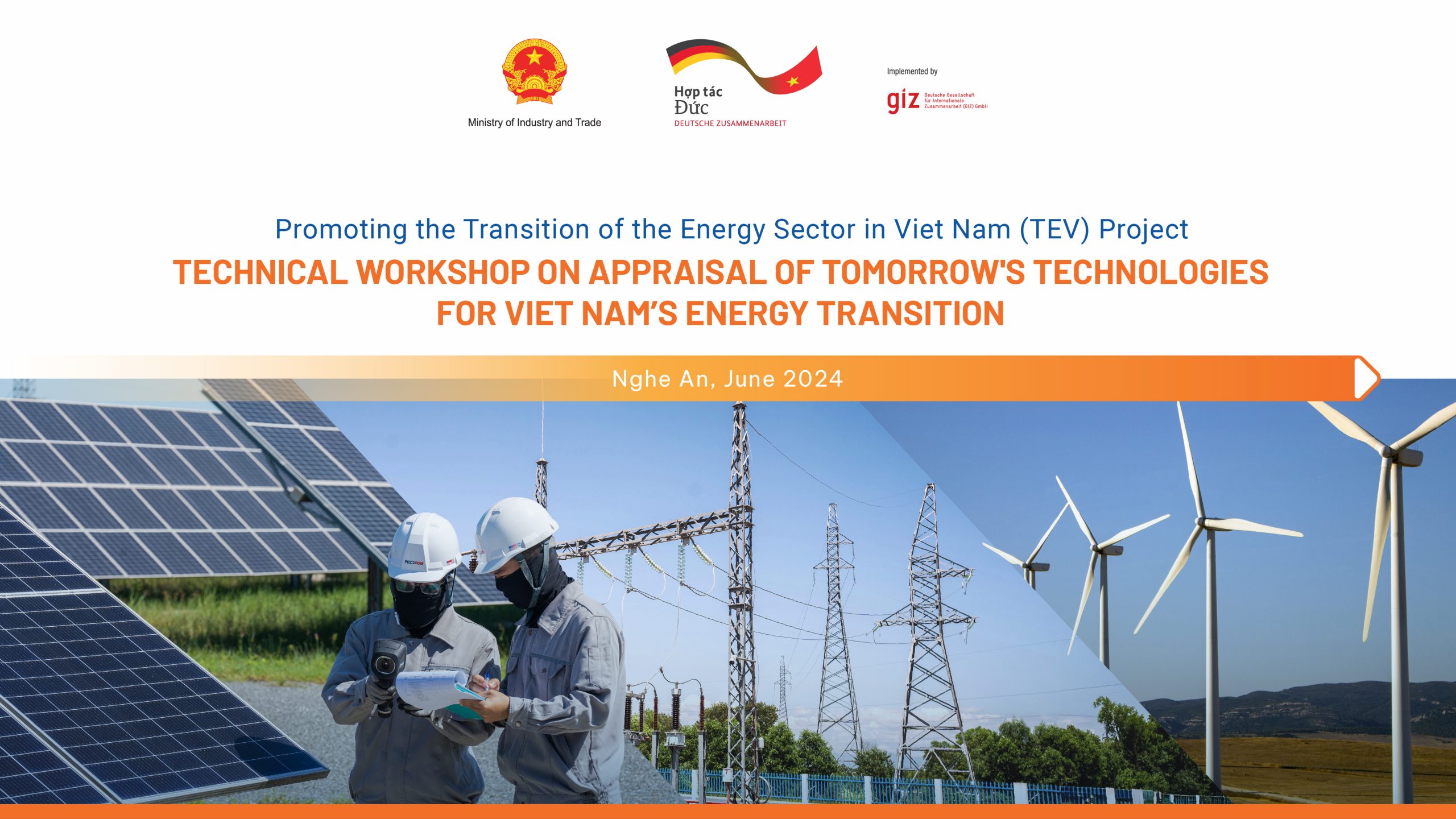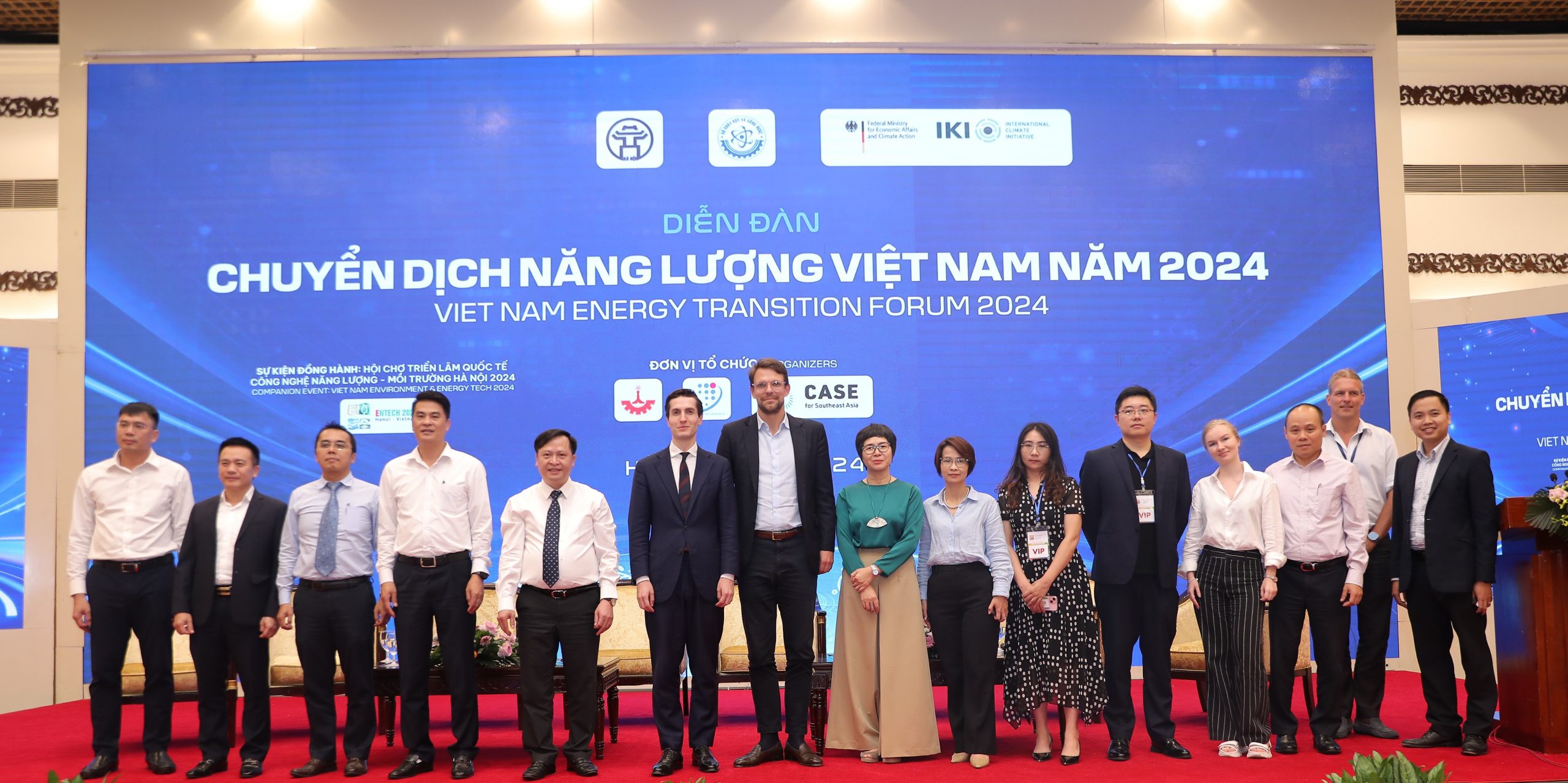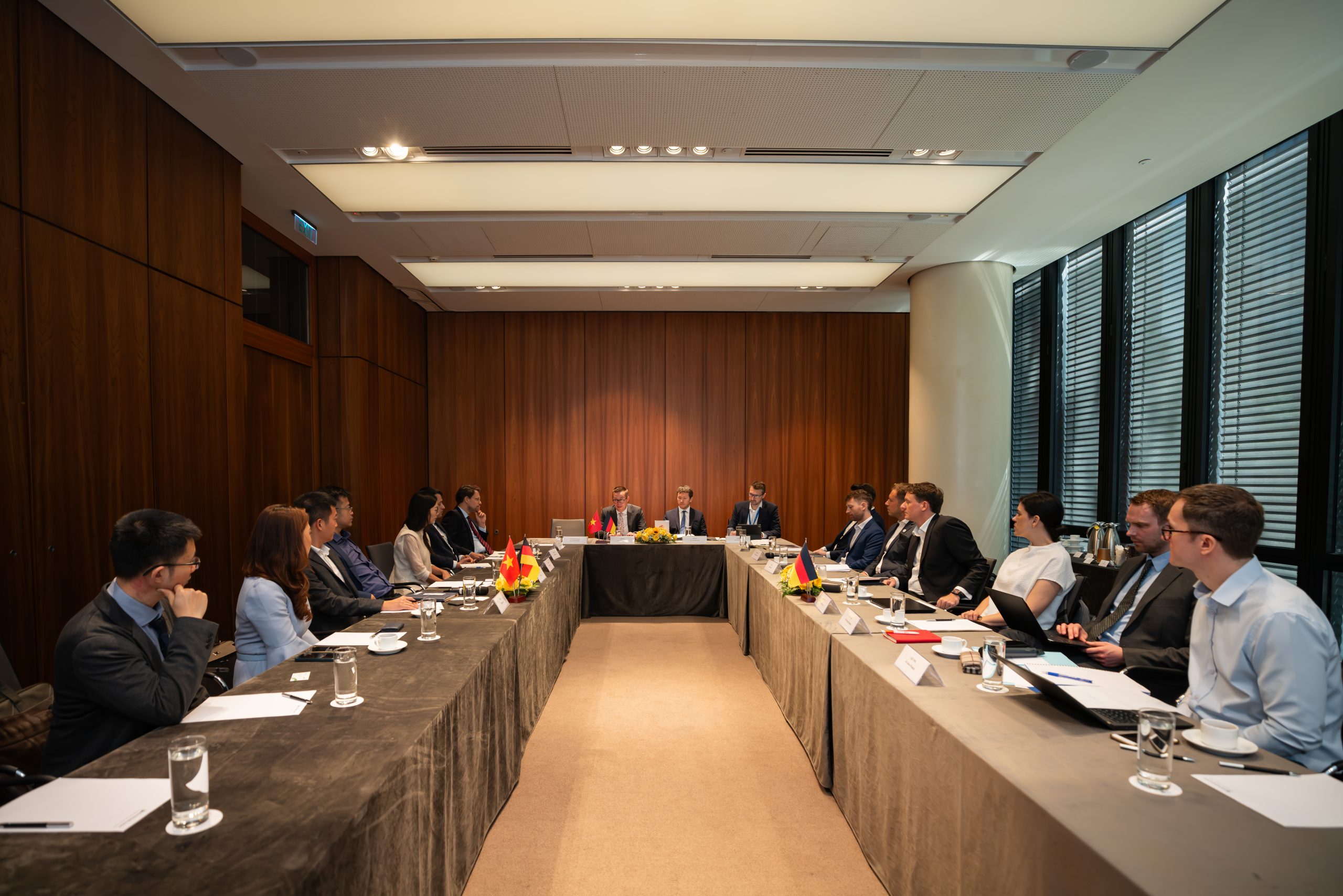Viet Nam and Germany had an energy dialogue on sharing common opportunities and challenges in the green energy transition. The dialogue has opened the door to further cooperation between the two countries towards the common carbon-neutrality target in the long term.
From November 28th to 30th 2022, Dr. Nicole Glanemann – Deputy Head of Division for Bilateral Energy Cooperation of the German Ministry for Economic Affairs and Climate Action (BMWK) paid a working visit to Viet Nam. Welcoming and working with BMWK are representatives from the Vietnamese Ministry of Industry and Trade (MOIT), as well as relevant ministries, departments, sectors, state-owned and private enterprises in the energy sector in Viet Nam.

Photo: Dr. Nicole Glanemann – Deputy Head of Division for Bilateral Energy Cooperation of the German Ministry for Economic Affairs and Climate Action and Mr. Pham Nguyen Hung – Deputy Director General Electricity and Renewable Energy Authority/ MOIT, as well as representatives of GIZ, relevant ministries, departments, sectors, state-owned and private enterprises in the energy sector in Viet Nam.
The Viet Nam – Germany energy cooperative relationship has been built and developed previously at the Berlin Energy Transition Dialogue and the Vietnamese- German Energy Day in the framework of Vietnamese representatives’ visit to Berlin, which took place in March 2022. This time, the relationship will be fostered by dialogues related to formulating policies for renewable energy (RE) development, green hydrogen potential in Viet Nam, setting up an energy efficiency club, as well as meeting German businesses in Viet Nam.
Challenges and solutions to power systems with high shares of renewable energy
Viet Nam and Germany are moving towards the net-zero target. To realise its goal in 2045, Germany has built and developed a power system with a high proportion of RE. During an exchange at the headquarters of Vietnam Electricity (EVN) on November 29, the German side shared the challenges to power system operation, such as reverse power flow, unstable system, difficulties in power forecasting and reserve power management, …
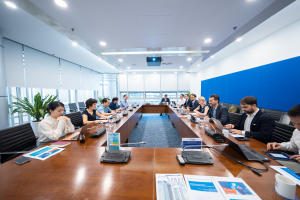
Photo: Working session between BMWK and EVN on RE Integration towards green energy transition
To solve these problems, many digital initiatives have been shared, including market design focusing on both energy production and consumption, real-time electricity price calculation, consumer centricity; building procurement platforms for grid congestion management services; applying artificial intelligence solutions to RE assets, promoting the enhancement of controllable devices; as well as improving system imbalance forecasting.
Energy Efficiency Club
According to the Nationally Determined Contributions (NDC), Viet Nam has committed to reduce greenhouse gas (GHG) emissions by 9% in the period 2021-2030 against the business-as-usual (BAU) level with domestic resources and possibly up to 27% with international support. Besides the transition to green energy sources, the economical and efficient use of energy is also one of the significant and sustainable strategies. Viet Nam National Energy Efficiency Program in the 2019-2030 period (VNEEP III) sets the goal of making energy saving a regular activity for designated energy users and energy-intensive industries.
Against this background, a workshop of Energy Efficiency Clubs was set up to discuss these clubs’ activities. Dialogues were held between representatives of BMWK, representatives of German associations in electrical equipment, energy and environment sector, and the Vietnam Energy Conservation and Energy Efficiency Association (VECEA) and the Energy Conservation Research and Development Center (ENERTEAM). These clubs will help connect businesses which are close together and have relatively similar features that could support each other regarding techniques, machinery, and equipment, thereby improving the quality of energy audit and management. Businesses can, therefore, learn from others and expand their network to prestigious consulting firms in the energy sector.
Also on this working day, a Letter of Intent was signed, marking the commitment of German energy associations and networks to support the development of energy efficiency networks in Viet Nam.
Policy framework for RE development and Green Hydrogen potential in Viet Nam
Building breakthrough mechanisms and policies to encourage and promote the development of RE sources is an important mission which is stated in the Politburo’s Resolution No. 55-NQ/TW on the orientation of Viet Nam’s National Energy Development Strategy to 2030 with vision to 2045. RE development policies provide clear and strategic guidance to foster RE development and integration into the power system.
Dr. Nicole Glanemann – Deputy Head of Division for Bilateral Energy Cooperation of BMWK worked closely with the Electricity and Renewable Energy Authority (EREA)/MOIT on November 30th on the topic “Policy framework for Renewable Energy development and Potential for Green Hydrogen in Viet Nam”. The workshop was attended by more than 80 delegates from relevant Ministries, Departments, and sectors such as the Electricity Regulatory Authority of Viet Nam (ERAV), the Oil, Gas and Coal Department under the MOIT, as well as international organisations, associations, enterprises, and universities nationwide. The event also attracted nearly 400 viewers on the online platform.
International experiences in developing policy frameworks for RE development were shared at the event. Accordingly, the RE law should be associated with national and global long-term strategies, and consistent with sectoral policies as well as strategies to ensure energy security. The content of the law needs to remain unchanged for several years or decades. Besides, the investment safety of private investors should be a matter of concern.
Germany and Viet Nam are moving towards net-zero emissions by 2045 and 2050, respectively. Around the world, 136 countries have committed to achieving net-zero emissions by mid-century. According to the German strategy, there are five main strategic pillars to realise its goal, including promoting RE; phasing out fossil energy; enhancing energy efficiency; electrification of heating & cooling and transport sectors; and developing clean hydrogen. Continuous policy development has contributed to promoting the deployment of RE in Germany with the share of RE sources accounting for nearly 50% of current electricity production.
In the afternoon session, participants had a lively discussion about the potential for green hydrogen development in Viet Nam. Green hydrogen is a key technology in promoting the energy transition, and an optimal solution for areas facing difficulties in reducing greenhouse gas emissions. Viet Nam has many favorable conditions for green hydrogen production; however, policies and partnerships will be essential to ensure the success of hydrogen development. Much of the hydrogen production capacity being built for export is likely to be developed in the context of bilateral partnerships, with preferential financing conditions and long-term supply contracts. Under such an approach, Viet Nam’s production costs are likely to be sufficiently competitive on the global market.
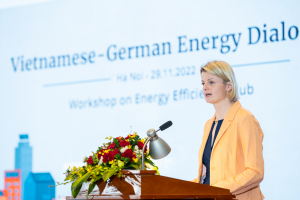
Photo: Dr. Nicole Glanemann – Deputy Head of Division for Bilateral Energy Cooperation of the German Ministry for Economic Affairs and Climate Action (BMWK)
In the context that Viet Nam and Germany share ambitious goals of Net Zero, Dr. Nicole Glanemann shared that Germany hopes to have more bilateral cooperation activities with Viet Nam to seize opportunities and overcome challenges in green energy transition towards the sustainable economic and social development of the country./.



